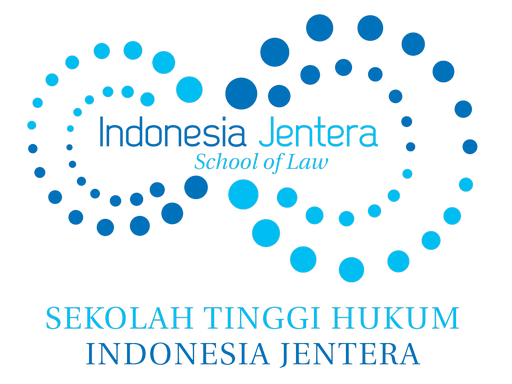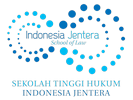
Photo from @kontras_update
The transfer of detained activists to the Jakarta High Prosecutor’s Office on October 29 was marked by dramatic scenes. Before entering the detention vehicle, Delpedro Marhaen, one of the detained activists, raised his handcuffed fist and shouted, ‘semakin ditekan, semakin melawan! (the more we are oppressed, the more we resist!)’
Although relatively small in scale, follow-up protests and acts of solidarity continue in defence of those detained by the police for their involvement in the anti-government protests of late August.
The police claim they are only targeting wrongdoers responsible for incitement, violence and destruction during the protests, which spiralled into violent riots. But the wave of mass arrests and summonsing of activists continued throughout September and October. With no clear indication of when it will come to an end, it has been widely dubbed the ‘activist hunt’ (perburuan aktivis).
A total of 6,719 individuals have now arrested, of whom 5,858 were later released. In all 997 people now face serious charges in what is possibly the largest crackdown on protesters since Reformasi (reformation) began in 1998.
Suspects have been interrogated across fifteen regional police departments, with the largest numbers handled by East Java Regional Police (325 suspects), Greater Jakarta Metropolitan Police (232 suspects), and Central Java Regional Police (136 suspects).
The Indonesian Legal Aid Foundation (YLBHI) has protested against the ‘hunt’, documenting numerous violations of law and human rights by the police in the processes of the arrests. These include: limited access to information for the families and legal counsel of detained activists; obstruction of access to legal assistance; the forced summoning of witnesses who are treated as if they were criminal suspects; and the confiscation of activists’ libraries, which are then absurdly used as evidence of alleged criminal acts.
The politics of scapegoating
There are also many claims of irregularities by securities forces during the August protests.
Tempo, one of Indonesia’s most respected news magazines, reported that military personnel, some briefly detained by police, may have been involved behind the unrest. Tempo has also claimed that alleged military personnel incited riots by mobilising youths through WhatsApp groups to burn government offices in Kendal, Central Java.
Although the Indonesian National Armed Forces Headquarters (Mabes TNI) has denied these allegations, the Tempo reporting has nonetheless reinforced public suspicions that the violence and looting in August were not spontaneous, but part of a political drama rooted in elite conflict.
Ideally, uncovering the nature of such conflict among the elites, especially if it involves law enforcement agencies or military personnel, should be done through the establishment of an independent fact-finding team appointed by the president. In fact, the formation of such a team, often referred to as a Joint Fact Finding Team (Tim Gabungan Pencari Fakta, or TGPF), has been demanded by various civil society groups.
However, President Prabowo Subianto has rejected it as unnecessary. He points to the existence of an independent team formed by six state human rights institutions, saying that he will support that team. Prabowo’s refusal has drawn sharp criticism, as it is seen as a sign of his unwillingness to risk exposing political intrigues and elite rivalries behind the riots.
Rather than pursuing accountability, Prabowo has chosen to reinforce the old strategies of scapegoating civil society, invoking foreign interference (antek asing), and even the possibility of subversive plots (makar), and terrorism.
Déjà vu: The Malari incident
The scapegoating of civil society feels evokes familiar memories of the pressures placed on civil society under the authoritarian New Order regime.
The recent arrests of activists and accusations that they are instigators of unrest recall the historical detention of student leaders and activists back then. A good example is prominent lawyers Yap Thiam Hien and Adnan Buyung Nasution, who were among those blamed for the riots labelled the Malapetaka Lima Belas Januari (15 January Disaster) or Malari incident in 1974.
The Malari riots were sparked by student demonstrations protesting corruption and economic policies. They took place during the visit of then Japanese Prime Minister Kakuei Tanaka. Student leaders Hariman Siregar, Sjahrir and Aini Chalid were sentenced to imprisonment, six and a half years for Hariman and Sjahrir, and two years and two months for Aini.
But allegations of mysterious mobs operating amidst the riots, and of behind-the -scenes rivalries between two powerful military generals, were left deliberately vague and remain shrouded in mystery.
The 1974 Malari incident also marked a key turning point in the New Order regime’s tightening grip on civil society in Indonesia. In the aftermath of Malari, the government revoked the publishing licences of fourteen media outlets. The regime also tightened its control over the student movement. This began with the issuance of the Minister of Education and Culture Decree (SK 028/1974), which required students to obtain permission from the rector before engaging in activities.
That policy was followed in 1978 by the implementation of the ‘Normalisation of Campus Life/Student Coordination Board’ (Normalisasi Kehidupan Kampus/Badan Koordinasi Kemahasiswaan or NKK/BKK) policy, which restricted students’ political activities under the pretext of encouraging them to focus more on academic pursuits.
Signs of Resilience
The ongoing ‘activist hunt’ is a part of an alarming pattern of growing pressure against civil society in Indonesia. It is part of the larger trend of democratic regression and the shrinking of civic space in Indonesia that seems to have accelerated after Prabowo’s rise to power.
Prabowo’s successful consolidation over the past year of a gigantic ruling coalition means there is no meaningful political opposition in the national legislature (the DPR). It leaves the president and the powerful elites surrounding him virtually unchallenged.
Furthermore, legal protections for dissent remain far from protective of civic space. The government can dissolve civil society organisations at will under the Ormas Law it inherited from President Jokowi, without first obtaining judicial approval as used to be the case. It can also readily ‘criminalise’ civil society activists who are critical of the government by deploying the Criminal Code (KUHP), the Electronic Information and Transaction (ITE) Law, and even the Child Protection Law.
The recent enactment of the new Military Law, which further expands military involvement in civilian affairs, also allows the military to crackdown on activists under the pretext of ‘military operations other than war’ (operasi militer selain perang or OMSP). The recent case of influencer Ferry Irwandi, who was reported to the police by the Commander of the TNI Cyber Unit (Satuan Siber Mabes TNI), in early September, serves as a stark warning of the growing military encroachment on civic freedoms in Indonesia.
In the face of these challenges and pressures, progressive civil society groups and activists have nonetheless demonstrated resilience.
This was evident following the August protests in the form of acts of solidarity and follow-up protests in response to the detention of activists. For example, former First Lady Sinta Nuriyah joined civil society leaders, academics, and musicians putting themselves forward as guarantors for the release of detained activists. Their efforts were reinforced by ongoing protests organised by diaspora communities around the world.
Legal advocacy has also been a critical front. The various efforts undertaken by the legal defence team Tim Advokasi untuk Demokrasi (TAUD, Advocates Team for Democracy), in defending detained activists, including filing pre-trial motions to challenge the police’s arbitrary arrests and detentions, demonstrate signs of legal resilience within progressive civil society groups.
But it is also important to remember and amplify the voices of resistance coming from behind bars. Letters from detained activists, attempted hunger strikes, and the formation of the Political Prisoners’ Union (Serikat Tahanan Politik) have all sent a clear message that, as Delpedro said, voices of dissent cannot be easily silenced.
A quest for strategic collaboration
While these signs of resilience offer hope, they should not be glorified.
Indonesian civil society still bears a legacy of repression from the New Order regime’s policies of depoliticisation and demobilisation that leave it fragmented to this day. Moreover, the civil society sphere is not exclusively occupied by pro-democratic actors but also includes factions often described as elements of ‘uncivil society’.
For resilience to translate into meaningful resistance, progressive civil society groups and activists, including students, NGOs, labour unions, and diaspora communities, must forge broader and more strategic alliances and develop a collective, long-term strategy of resistance. Of course, that is no small task, and far easier said than done.
But given the increasingly hostile political climate confronting civil society, activists have no choice but to build bridges, not burn them.
Sumber: Indonesian civil society shows resilience in the face of ‘activist hunt’ crackdown
Dipublikasikan oleh:


